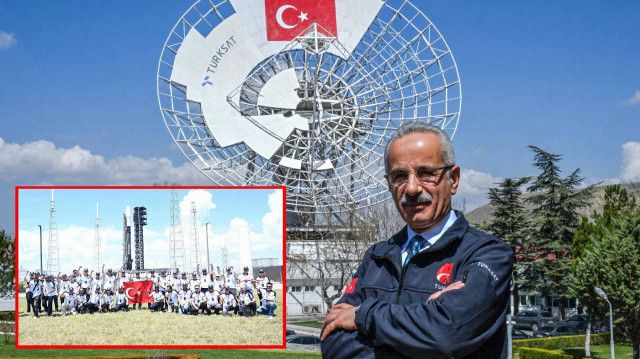Minister of Transport and Infrastructure, Abdulkadir Uraloğlu,
recently celebrated a significant milestone in Türkiye’s space
endeavors, marking the commissioning of the country’s first
domestically produced communication satellite, Türksat 6A. This
achievement positions Türkiye among a select group of nations
capable of developing their own communication satellites, a
testament to the nation’s growing space capabilities.
In his statement, Uraloğlu emphasized the long-term impact of
Türksat 6A, asserting that the satellite’s success would lay the
foundation for future space projects. “We have entered a new era in
space with Türksat 6A,” Uraloğlu stated, adding that the focus is
now on Türksat 7A. “Our first goal is for Türksat 7A to possess
even more advanced capabilities than its predecessor. With our new
projects, we are asserting our presence in space.”
The minister revealed that Türksat AŞ has already initiated
preparations for Türksat 7A’s production, with a clear aim to send
another state-of-the-art communication satellite into orbit.
Uraloğlu also highlighted that the tender process for the
construction of Türksat 7A is already underway, with Turkish
companies gearing up to compete with the world’s top satellite and
space organizations.
Türksat 7A will not only have technical importance but also
serve as a cornerstone in Türkiye’s national technology ecosystem.
Uraloğlu expressed that the project would not only enhance the
country’s satellite capabilities but also boost its technological
infrastructure, creating new synergies and advanced engineering
solutions. “The contribution of our domestic industry will be
maximized in the Türksat 7A project,” he said. “This is more than
just a satellite project; it’s an opportunity to raise Türkiye’s
technological capacity.”
Looking ahead, Uraloğlu stressed the importance of a
comprehensive vision for Türkiye’s space ambitions, noting the
collaboration between the public and private sectors, as well as
universities, in driving the country’s progress. “Turkey is
determined to go further in satellite and space technologies,” he
affirmed.
Additionally, Uraloğlu reminded that Türksat currently holds
orbit rights at 31, 42, and 50 degrees east, and with the
commissioning of Türksat 7A, Türkiye’s presence in these critical
orbits will significantly expand. “With Türksat 7A in orbit, we
will be able to offer direct communication access to a vast portion
of the world’s population,” he stated.
This achievement, according to Uraloğlu, represents more than
just technical success—it is a strategic win for Türkiye, expanding
the country’s influence in communication, defense, economy, and
diplomacy. “As the coverage area increases, Türkiye’s commercial
satellite service potential will rise, making it a preferred
digital infrastructure provider in a broader region,” he added.
“Türksat 7A will not just be a satellite—it will be Türkiye’s
digital arm reaching across the globe.”
